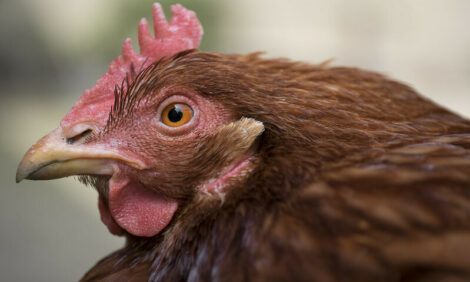



Cage Eggs Best for the Environment?
US - While some animal rights organizations have been campaigning to ban traditional cage eggs in the U.S., it turns out that these eggs may be best for the environment.A study conducted by Adrian Williams, PhD., senior research fellow at Cranfield University in the United Kingdom, found that the traditional cage egg production currently used by most U.S. egg farmers decreases the industry's effects on global warming by 10 percent, while converting to all free-range egg production would increase the effects on global warming by 10 percent and converting to all organic egg production would increase the effects on global warming by 40 percent.
Free-range and organic egg farms are more environmentally intense because their need for more green space, food and energy.
The research examined the energy and food levels for farm production on 10 different agricultural and horticultural commodities such as potatoes, tomatoes, beef, milk, poultry, and eggs. In addition to the varying production findings, the study found that egg production as a whole is less harmful on the environment than other livestock. Egg production takes less global energy thus producing less greenhouse gases into the atmosphere. The study was funded by the Department for Environment Food and Rural Affairs in the U.K.
Grocery shoppers can find UEP Certified eggs by looking for the UEP Certified logo on cartons of most brands of eggs, since 95 percent of the eggs produced in the U.S. come from farmers who participate in the program. UEP developed the United Egg Producers Certified animal welfare program (www.uepcertified.com) to assure consumers, retailers and foodservice professionals that egg cartons carrying the UEP Certified logo are from farmers who adhere to the highest scientific standards for egg production and undergo independent audits from the USDA and Validus to ensure 100 percent compliance.
UEP developed the UEP Certified program for modern egg production out of scientific guidelines established by an independent advisory committee of the top animal welfare scientific experts in the U.S. The USDA, the Food and Drug Administration and the Federal Trade Commission have approved the UEP Certified logo. The International Egg Commission has recognized the program as a model from which to create animal welfare programs in other member countries throughout the world. In addition, the Food Marketing Institute and the National Council of Chain Restaurants also endorse these guidelines. To view a complete copy of the UEP Certified Guidelines and to learn more about the program visit www.uepcertified.com.








